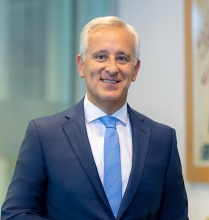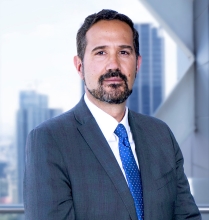International Arbitration Newsletter - February 2021 | Regional Overview: The Americas
The most relevant updates of The Americas from the global International Arbitration and ADR practice group at Garrigues.
Brazil
Pulp maker ordered to sell controlling share
An ICC tribunal has an award in favour of CA Investment (a Brazilian subsidiary of Paper Excellence, a Dutch company owned by the Indonesian Widjaja family) ordering J&F Investimentos (owned by the Brazilian Batista family) to comply with an agreement to sell a control percentage in Brazilian pulp maker Eldorado Brasil Celulose (Eldorado) toCA Investment .
CA entered into the agreement with J&F in 2017 initially to buy a 49.4% stake in Eldorado for up to US$ 1.2 billion and obtaining the right to an option for the remaining 50.6% stake.CA Investmsought to exercise this option which was contingent on CA Investment releasing J&F’s guarantees amounting to US$ 1.8 billion to US $ 2.4 billion. However, the parties’ positions regarding the release of the guarantees became entrenched and CA commenced ICC arbitration proceedings in 2018, seeking specific performance. For its part, J&F counterclaimed for breach of contract.
CANADA
Mexico barred from appealing NAFTA ruling
The Ontario Court of Appeal dismissed Mexico’s appeal in a ruling issued at the beginning of February after concluding that Mexico’s challenge to the NAFTA award had proceeded substantially under article 16(3) of the UNCITRAL Model Law, which determines that a lower court ruling on such a challenge is not subject to appeal.
In 2016 nearly 40 investors launched their NAFTA claim against Mexico requesting over US$ 450 million for alleged breaches related to the closure of several of their casinos, the revocation of permits or the initiation of tax and criminal investigations, all ordered by the State.
After a Toronto-seated ICSID tribunal published a majority award in 2019 upholding jurisdiction over all but one of the claims, with a dissenting opinion authored by Mexico’s appointee, the Ontario Superior Court of Justice refused to set aside the award in 2020, arguing that Mexico had failed to prove the arbitrators were incorrect in upholding jurisdiction.
In short, Mexico’s contention was twofold: first, that most of the claimants had failed to give a prior 90-day notice of their intent to bring an arbitration, as procedurally required and, second, that no investor had delivered a written consent to arbitration. These arguments were rejected by the Canadian judge who argued that the arbitral tribunal had not erred in determining that it was not necessary to follow every procedural step included in the trade agreement rigorously.
CHILE
ICSID dismisses claim by owners of Transantiago transport operator companies against the Chilean government
On January 11, 2021, ICSID delivered an award dismissing the claim filed by the Ríos brothers, owning controlling interests in Inversiones Alsacia S.A. and Express de Santiago Uno S.A., both operator companies for Transantiago (public transport system operating in Santiago de Chile), against the Chilean government, brought in May 2017, in which they claimed a USD 330 million payment for actual damages and a USD 15 million payment for moral damages. The claim accused the Chilean government of failing to meet a few conditions in the Chile-Colombia Free Trade Agreement, arguing that an expropriation of their investment had occurred due to the discontinuation of certain bus routes.
The tribunal concluded that the discontinuation of certain services could not be held to be an expropriation by the Chilean government of the claimants’ investment. The claimants were also ordered to pay the entire costs of the proceeding, amounting to the equivalent of USD 680 thousand, besides having to assume 40% of the legal fees incurred by the respondent, bringing the total amount of costs payable by the claimants to close to USD 2.6 million.
Concession-holder for Nueva Pudahuel airport announces it will commence arbitration proceedings at ICSID against Chilean government
The concession-holder (owned by Aeroports de Paris, Vinci Airports and Astaldi) formally communicated on January 19 its decision to initiate a process against the Chilean government at CIADI, referring to a failure to fulfill its obligations contained in the Agreement between Chile and France for the Reciprocal Promotion and Protection of Investments. The concession-holder argued that, as a result of the pandemic, the passenger traffic at the airport had fallen by as much as 70% in 2020, causing losses in the region of USD 30 million, with respect to which the Chilean government had not adopted any measures to help the concession-holder mitigate those losses, whereas governments in other countries had done so.
The Chilean government denied liability because it had no obligation to pay for the concession-holder’s losses in these months and added that this company had to assume the risk associated with the pandemic. Following the concession-holder’s announcement a six-month pre-arbitration negotiation period commenced between the concession-holder and the Chilean government as determined in the procedure set out in the bilateral investment agreement.
PERU
Peru claimant ordered to reveal funder´s identity
US citizen Mr. Bacilio Amorrortu in a an arbitration proceeding before the Permanent Court of Arbitration (PCA) has been ordered to disclose the identity of the funder sponsoring his claim without disclosing any specific details of the financing agreement, concluding that Peru had failed to show sufficient evidence that Mr. Amorrortu lacked the means to pay the potential award on costs.
According to Peru, it was necessary to reveal Mr. Amorrortu’s funding details (i) in order to avoid conflicts of interests with the appointed arbitrators, (ii) to “ensure the integrity of the proceedings”, (iii) to determine the “degree of control” either the investor or the funder would have over any potential negotiations related to the claim and finally (iv) to avoid a situation where Mr. Amorrortu was unable to pay an adverse award on costs.
Mr. Amorrortu did not oppose the request made by the State and the arbitral tribunal agreed to grant the request rejecting Peru’s argument that the existence of a third-party funder did not imply the investor’s impecuniousness. The tribunal held that it was dealing with a debate that potentially affected the investor’s “access to justice” rights. If an investor meets the procedural requirements to have his claim heard, said the tribunal, such investor should not have to prove he can satisfy an adverse award on costs nor, for that matter, that he is free to end or negotiate the termination of the arbitration proceedings.
Contacts



-
+52 55 1102 3570
-
+52 81 8153 3900
-
+52 442 296 6400
-
+57 601 326 69 99


